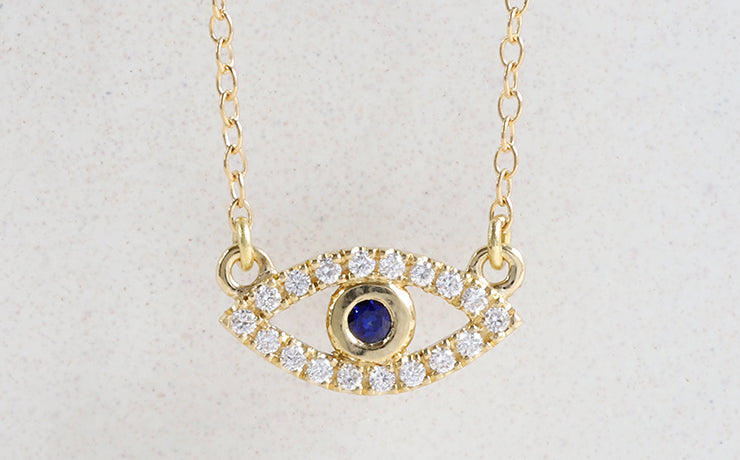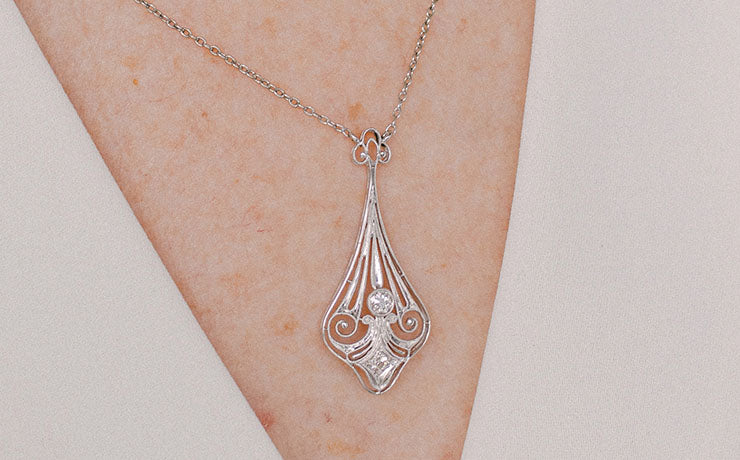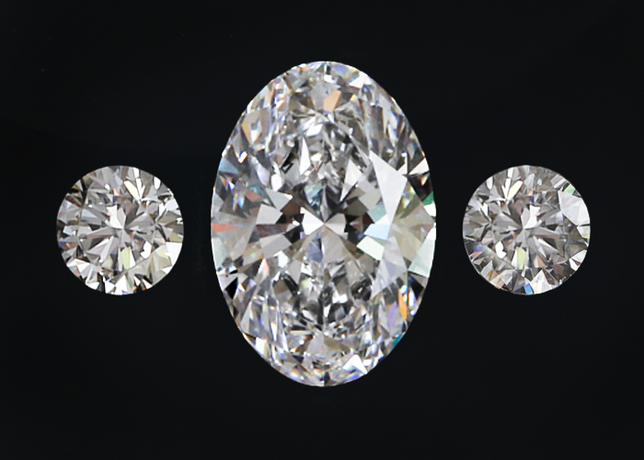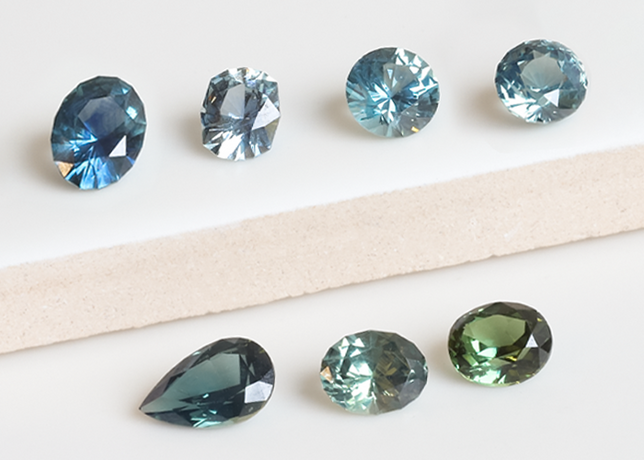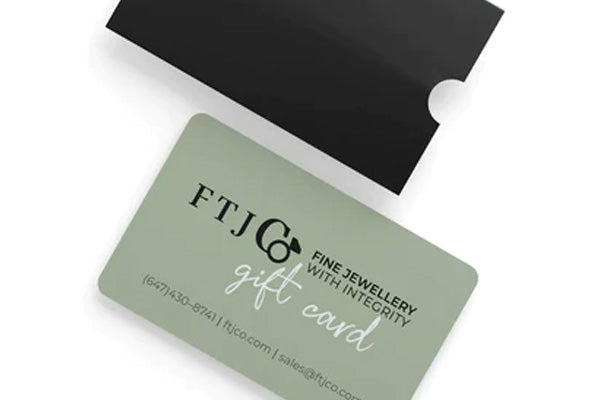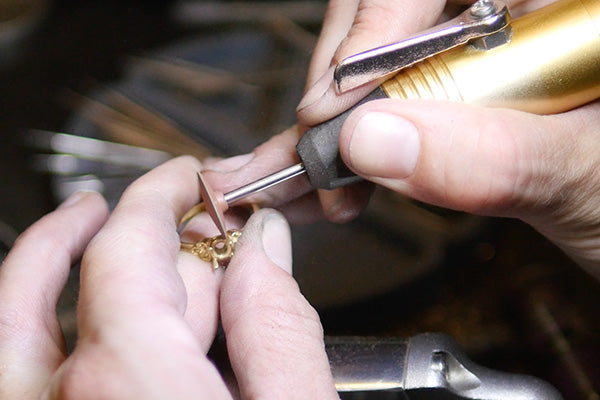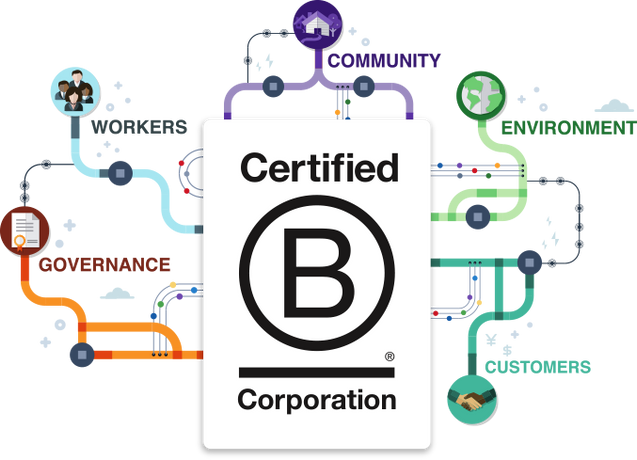FTJCo OECD Step 5 Reports
This report is published annually with quarterly updates published on an ‘as needed’ basis.
Introduction
The Fair Trade Jewellery Company (also known as ‘FTJCo’) is a federally incorporated Canadian company, corporation number 676400-2. Our due diligence manager is Kesha Frank (+1-647-430-8741, kesha@ftjco.com).
The company is owned jointly, by the two co-founders: Robin Gambhir & Ryan Taylor and was founded based on the vision of providing consumers an option for buying jewellery made from responsibly-sourced and traceable materials. FTJCo is a member of the Responsible Jewellery Council, a Certified B Corporation, was the first jeweller in North America to use Fair Trade Gold and was the second jeweller in the world to use Fairmined gold.
Recently, FTJCo has been working with Canadian NGO, IMPACT, to engage in and support responsible sourcing and legal trade in conflict-free ASM gold from conflict-affected regions.
Section 1: Approach to Responsible Sourcing of Minerals
FTJCo is committed to implementing the OECD Due Diligence Guidance on Responsible Mineral Supply Chains from Conflict-Affected and High-Risk Areas. We understand that the due diligence is an ongoing process of engagement with the actors in our supply chains to identify, mitigate and address any risks identified in our supply chains that are outlined in Annex II of the OECD Guidance. While FTJCo is a downstream actor in the jewellery supply chain, notably a jewellery manufacturer and retailer, we are committed to engaging with all actors in the supply chain down to the mine site level in order to ensure proper due diligence is carried out, but also so that we can understand the impacts of our supply chains on the people involved, both directly and indirectly. As such, our due diligence and risk assessments go beyond the point of refining into the upstream segment of the supply chain, and we work closely with partners working in the field or via well-established programs for responsible sourcing, such as Fairtrade and Fairmined.
Section 2: Sources of gold
FTJCo sources gold from the following countries and standards:
Just Gold: Democratic Republic of Congo, mine sites in eastern DRC, in collaboration with NGO IMPACT, using the OECD Due Diligence Guidance as a framework and the Consensas software platform to collect traceability and due diligence data, which is combined with monitoring & evaluation data gathered by IMPACT and its partners in DRC.
Fairtrade Gold Peru, Uganda & Kenya
Fairmined Gold Peru, Bolivia, Colombia & Mongolia
Recycled Gold: Canada, United States
Section 3: Company Management Systems
Policy: In early 2018, Fair Trade Jewellery Company adopted a conflict minerals policy which is available on its website and is implemented at its offices in Toronto, Canada. Going forward, this policy will be shared with all future suppliers and business partners.
Management structure: The company’s Head of Production, Ms. Kesha Frank, is in charge of due diligence, metal orders and inventories. She reports directly to Mr. Gambhir who oversees operations, imports & exports. Ms. Frank orders metals in either alloyed or fine (pure) form certified suppliers in the Fairtrade or Fairmined trading systems as well as recycled gold. The Just Gold imports are handled by Mr. Gambhir who oversees the import, compliance documents, refining and chain of custody for that gold. Currently, the company is the only jeweller manufacturing and retailing Just Gold.
Supply Chain Due Diligence:
Supplier information: Fair Trade Jewellery Company keeps a list of all active (and past) suppliers of minerals and keeps files for each mineral supplier, including Know Your Customer (KYC) forms where applicable.
With the exemption of Just Gold, minerals are sourced either through the closed supply chains of the Fairtrade or Fairmined standards or from suppliers that are certified by the Responsible Jewellery Council.[1]
For Just Gold in DRC, gold from the 6 Just Gold sites–all of which have been validated ‘green’ by the Government of the DRC– is sold by a legally registered cooperative, CODEMA, to a legal exporter, Fair Congo, which then exported the gold to FTJCo. A green validation of a mine site in DRC means that the government, through a multistakeholder process, has assessed the site as not having any serious risks present at that time, including the presence of or illegal taxation of a mineral supply chain by an illegal armed group, use of child or forced labour, or illegal control of mine sites by public security or private security forces. All six sites in the Just Gold project were validated green in February 2016 through a Ministerial Decree.
In the Fall of 2018, Fair Congo began exporting Just Gold to a U.S.-based refiner, Hoover & Strong, which holds the Just Gold segregated from other metals. Hoover & Strong refines the gold to fine (24K) which it then sells to FTJCo’s location in Toronto.
Through IMPACT, FTJCo has access to all of the pertinent information, including but not limited to the miner’s ID card, cooperative membership cards, and relevant licenses. All of the data and due diligence documentation for each purchase of Just Gold is provided to FTJCo.
Direct Purchases from Exporters:
For Just Gold, until the Fall of 2018, FTJCo was purchasing directly from an exporter in DRC. FTJCo has signed a contract with Fair Congo and has met face-to-face in order to discuss our mutual commitment to responsible sourcing and the sustainability of due diligence and responsible sourcing from the DRC. Fair Congo is exporting gold from other green validated mine sites in DRC, however Just Gold is kept segregated from other sources, and FTJCo is able to verify this given that it receives all of the traceability data from the pit, mine site and cooperative levels to assess against the export data it receives for Just Gold.
Fair Congo has a Conflict Minerals Policy and an Incident Reporting section on their website. Fair Congo started exporting gold in February of 2018 and has not yet informed FTJCo about whether it has undergone an ICGLR audit or other 3rd party audits.
Purchases from Refiners: Until the Fall of 2018, FTJCo purchased Just Gold directly from Fair Congo and took custody of the gold upon the point of entry into Canada. These purchases had been transported to Toronto by IMPACT staff or Fair Congo staff (though arrangements are being made in order to identify options for a 3rd party transporter). FTJCo then transports the gold to a local refinery in Toronto, which refines the gold. FTJCo only works with refiners that will segregate Just Gold from other materials, and documents the process of refining through weighing before/after, receipts, material transform forms, photography, XRF scans. FTJCo ensures that the chain-of-custody standard recognized by the Responsible Jewellery Council is followed.
As of the Fall of 2018, FTJCo is purchasing Just Gold from the Hoover & Strong refinery in the United States. This gold has been transported to Hoover & Strong by Fair Congo staff.
FTJCo also purchases other sources of gold from refiners and suppliers that are certified by the Responsible Jewellery Council.
Record keeping: Fair Trade Jewellery Company collects and stores documentation related to all gold purchases electronically for a minimum of 7 years, including any relevant chain of custody or due diligence documentation. This includes receipts, KYC forms, import/export documentation, assays and transfer records.
For each export of Just Gold, Fair Trade Jewellery Company is provided with all of the traceability data from the pit level to the exporter that corresponds with the particular export lot purchased. This includes quantities produced at each pit, the miners who produced it, their registration number, the cooperative agents who purchased the gold from the miners and on which dates, and the total quantities of gold from each site that contributed to the export lot. Furthermore, FTJCo is provided with all of the receipts for all import/export taxes and fees paid for each export.
Section 4: Risk Assessment:
Our Approach to Risk Assessment and Risk Mitigation
Fair Trade Jewellery Company carries out on-going, internal risk assessments on its supply chains and works primarily with non-profit organizations and programs that enable the company to better monitor risks. The company believes that regular engagement and building of long-term relationships with trusted suppliers and non-profit organizations working on the ground is the best risk assessment and mitigation strategy.
Risk Assessment of Just Gold from the Democratic Republic of Congo
Fair Trade Jewellery Company works closely with IMPACT for minerals sourced from the Just Gold project, as IMPACT staff are present at the Just Gold mine sites on a daily basis. IMPACT provides daily oversight and any risks identified are reported to and discussed with FTJCo. These include but are not limited to, fraud, illicit trading human rights violations. , the co-owner of FTJCo made a site visit to the Just Gold project in August 2017 and was able to evaluate the traceability and due diligence system that is operated by IMPACT and the cooperative for the Just Gold project, CODEMA; an extended version of that system is now operating on the Consensas software platform. A second visit by the co-founder took place in February 2019 to collect more data to build a more robust and complete software platform for reporting.
IMPACT is also supporting the development of local, provincial and national-level committees that will help monitor the implementation of certification and due diligence efforts in the province of Ituri. These committees will help raise challenges and identify risks as they emerge.
There are particular risks in sourcing ASM gold from a conflict-affected and high-risk areas like the Democratic Republic of Congo (DRC) which Fair Trade Jewellery Company has identified based on its own internal risks assessments, research, stakeholder engagement and its engagement with IMPACT as the implementer of the Just Gold project. These broadly included many of the risks outlined in Annex II of the OECD Due Diligence Guidance on Responsible Minerals Supply Chains in Conflict-free and High-Risk Areas. The following were identified as potential risks that can be found when sourcing ASM gold from the DRC:
|
Risk Identified |
|
Presence of illegal armed groups in parts of the DRC |
|
Human Rights Violations |
|
Worst Forms of Child Labour |
|
Illegal/informal payments to state security officials |
|
Illegal/informal payments to government officials |
|
Non-payment of legal taxes and fees |
Risk Mitigation for Just Gold in DRC
While in general these are supply chain risks associated with purchasing artisanal gold from the DRC, as mentioned above, the Just Gold sites have been validated green by a multistakeholder validation mission led by the Government of the DRC. While the security situation in other parts of Ituri province began to deteriorate in early 2018, Mambasa, where the Just Gold mine sites are located, has remained relatively stable and there has been no presence of armed groups reported by IMPACT staff since FTJCo began sourcing Just Gold in June 2017.
All of the miners, cooperative and exporter in the upstream segment of the Just Gold supply chain have the appropriate legal permissions to operate. IMPACT’s traceability system tracks gold from the pit level all the way to the exporter, and all of the data and documentation used to track the gold is provided to FTJCo upon export to Toronto. This includes receipts for all of the taxes and other fees associated with the legal export of gold. In addition to obtaining receipts for payments, IMPACT regularly engages with the Government of the DRC to ensure that government officials overseeing the export process are requiring only legitimate payments.
In addition to the traceability system, the production capacity and levels are monitored closely to ensure that only gold mined at the six sites are being sold as Just Gold, and IMPACT’s local staff are present at the sites daily. This also provides for close monitoring for incidents related to presence of armed groups, human rights violations and child labour.
Risk Assessment of Fairtrade and Fairmined Gold
FTJCo relies on the programs administered by the Fairtrade and Fairmined programs, and is aware that both programs include gold from these respective countries:
Fairtrade Gold: Peru, Uganda & Kenya
Fairmined Gold: Peru, Colombia & Mongolia
FTJCo is unable to assess the country of origin of the Fairtrade and Fairmined gold with certainty, as there is no chain-of-custody documentation that is provided to FTJCo upon purchase. Instead, FTJCo relies on Fairtrade and Fairmined for assurances that the gold that is entering into the closed-pipe Fairtrade and Fairmined programs is in line with their standards and originates from certified supply chain actors. This is done through audits of mine sites, cooperatives and suppliers that are performed by Fairtrade and Fairmined.
FTJCo has reached out to its suppliers of Fairtrade and Fairmined gold in order to request more information on the country of origin of the specific gold being purchased, and further information on the results of these requests will be made in our next report, as it’s made available.
Section 6: Actions Taken in Accordance with the OECD Due Diligence Guidance on Responsible Mineral Supply Chains from Conflict-Affected and High-Risk Areas
Exporter for Just Gold
In early 2018, FTJCo – alongside IMPACT – transitioned exporters of Just Gold from the Muungano na Maendeleo (MnM) export company to Fair Congo. While IMPACT has worked with MnM to make progressive improvements to its sourcing practices and adhere to the OECD Due Diligence Guidance and the ICGLR Regional Certification Mechanism, FTJCo has ceased purchasing gold from MnM, and MnM is no longer operating as an exporter in the Just Gold supply chain. The primary reason for this is that MnM continues to purchase ASM gold from non-validated mine sites in DRC. It should be noted that the economic disincentives for legal ASM gold trading in DRC has significantly impeded MnM’s ability to work in line with the OECD Due Diligence Guidance and the ICGLR Regional Certification Mechanism (RCM) in a manner that is economically viable. IMPACT will still continue to offer training and sensitization on due diligence and certification to MnM, should they manage to acquire adequate volumes of responsible ASM gold to cease purchasing gold from non-validated mine sites in DRC.
Fair Congo is only sourcing gold from mine sites that have been validated green by the Government of DRC. Just Gold will be segregated from other sources and the traceability data that accompanies the gold will allow FTJCo to verify this.
Efforts to address informal taxation in Ituri
Furthermore, FTJCo is aware that IMPACT is engaged with the CEEC (the government agency responsible for certification) in Kinshasa in order to ensure that there were no informal payments being required by the CEEC officials in Ituri during the export procedure. Future export procedures will take place in South Kivu now that FTJCo is working with Fair Congo, which is based in Bukavu, and outreach with the CEEC in Kinshasa by both IMPACT and Fair Congo will continue.
Suspension of a Just Gold mine site
In July of 2018 an investor attempted to start a new mining operation using large equipment at one of the Just Gold project mine sites, Kafiawema without discussing their intentions with CODEMA. Once CODEMA became aware of this, they realized that the investor would have received 80% of the production, leaving CODEMA with only 20%, thus raising the issue of where that 80% would be sold. Furthermore, the investor had intentionally attempted to exclude the cooperative, in violation of Article 5 of the DRC’s Mining Code. IMPACT contacted the Provincial Mining Minister who began an investigation into the matter in August 2018. As a result, both men’s mining licenses were suspended, at which point work in Kafiawema could recommence.
Cases of fraud and illegal sales as related to the Just Gold Supply Chain
In 2018 there were 5 incidents of fraud and/or illegal sales reported by IMPACT as part of their Supply Chain Incident Report.
- In June 2018 a member of the Armed Forces of the DRC (FARDC) demanded that CODEMA pay an illegal fee ($10.00 USD) during travel on the Mambasa-Bunia route. CODEMA and IMPACT notified the Comité Provincial de Suivi about this illegal payment in July 2018. This incident is listed as unresolved by IMPACT, and further actions have been taken by informing relevant government authorities.
- In June 2018 a miner from a non-validated site entered the Kafiawema site at which point he attempted to sell 1.86 grams of hard rock gold to the Mini MAM. Upon inspection, the Mini MAM noticed that it was in fact a piece of iron weighing 1.2 grams which were covered by a thin layer of gold weighing 0.84 grams.
- In July 2018 one mini-MAM agent requested to temporarily use the backpack of a miner. Inside this backpack was a small package of gold the miner had collected. When the backpack was returned to the miner, the package of gold had gone missing. The action taken to rectify this situation is to provide the Mini-MAM agents backpacks that can be used as well as verification that the backpacks are in good working order. The incident was reported to the security team on the mine site. This issue remains listed as open.
- In September 2018 a miner also occupying the position of Director General of the site administration was found to be tampering with the manual scales used in the purchasing of gold from his own mining team. This miner was arrested and fined for the infraction. In response SAEMAPE’s[2] Chef de Service has conducted retraining on traceability standards. This case has been listed as resolved by IMPACT.
- In October 2018, it was discovered that a miner, member of the CODEMA cooperative, was buying gold from other miners in collaboration with a gold trader outside of the Just Gold project, thus outside the traceable supply chain. CODEMA alerted the SAEMAPE and an investigation is ongoing.
Auxiliary incidents not directly related to or affecting the supply chain
Between October 2018 and March 2019, there were 4 incidents that were reported on by IMPACT which were not related to or directly affecting the Just Gold supply chain.
- In February 2018 IMPACT received a phone call from a Mini-MAM agent stating that one of his colleagues, also a Mini-MAM agent, had been kidnapped. After alerting the police and SAEMAPE, who began an investigation, it was discovered that the alleged kidnapping victim had been “released” by his assailants in order to retrieve money from the Mini-MAM as ransom. As there was no evidence that the Mini-MAM agent had been kidnapped after speaking with various neighbours and community members, the police looked into the Mini-Mam agent’s personal life and discovered that he probably kidnapped himself in order to divert the Mini-MAM money for personal reasons. All business was halted with the Mini-MAM agent in question, and a new Mini-MAM agent was hired; the police continue to investigate the situation. This issue has been listed as resolved by IMPACT.
- In October 2018 two men from the FARDC arrived at the Tokomeka mine site and attempted to extract payments to guarantee safety. These men were informed that they were at a conflict-free mine site and did not require their services. These men then stated that they would require payment on their next visit and proceeded to leave. The two men in question have not been reported to have returned to the mine site. The manager of the CODEMA cooperative is arranging a meeting with the Administrator of Mambasa Territory to address the issue. This issue has been listed as resolved by IMPACT.
- In October 2018 a woman reported having been raped by a fellow miner while travelling between sites to her home. The woman was taken to hospital and the authorities were notified. This incident is listed as unresolved as the perpetrator has not been apprehended and the investigation by proper authorities is ongoing.
- In December 2018: the bodies of two girls and one woman were discovered by the villagers of SOME. It was difficult to confirm the dates of their deaths because the corpses were in an advanced stage of decomposition. The three corpses had been severely mutilated. Only the corpses of the girls could be identified thanks to the clothes found in the neighbourhoods. As far as the woman is concerned, no personal effects have been found and to this day she remains unidentified. The police did not continue the investigations and no perpetrators were arrested. Since then the women have organized themselves to go together to draw water and cultivate the fields.[3]
Section 7: Future Improvements to Due Diligence Processes
1) FTJCo will be sharing its new conflict minerals policy with all of its current suppliers.
2) FTJCo will be incorporating its new conflict minerals policy and its expectations for suppliers to engage in due diligence in accordance with the OECD Due Diligence Guidance in its future contracts with suppliers.
3) FTJCo will continue to engage its suppliers with the objective of increasing their knowledge and understanding of the expectations of them as defined by the OECD Due Diligence Guidance and ensure that they are or will progressively implement the Guidance.
[1] https://www.responsiblejewellery.com/rjc-certification/
[2] SAEMAPE – Service d’assistance et d’encadrement des exploitations minières artisanales et à petite échelle
[3] The women civil society organization REAFECOM has taken the initiative to report and follow-up on cases of sexual violence in the Just Gold project area.
 Solitaire
Solitaire
 Solitaire with Pavé
Solitaire with Pavé
 Bezel Set
Bezel Set
 Halo
Halo
 Multistone
Multistone
 Unique
Unique
 Nature Inspired
Nature Inspired
 Everyday
Everyday
 Wider Band
Wider Band






